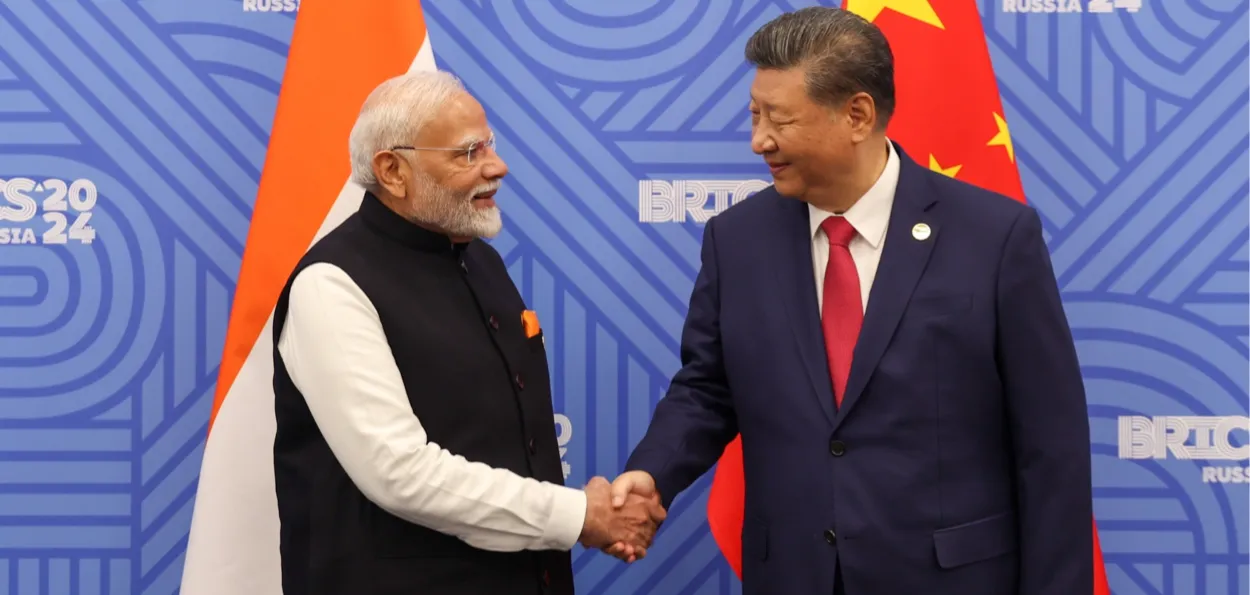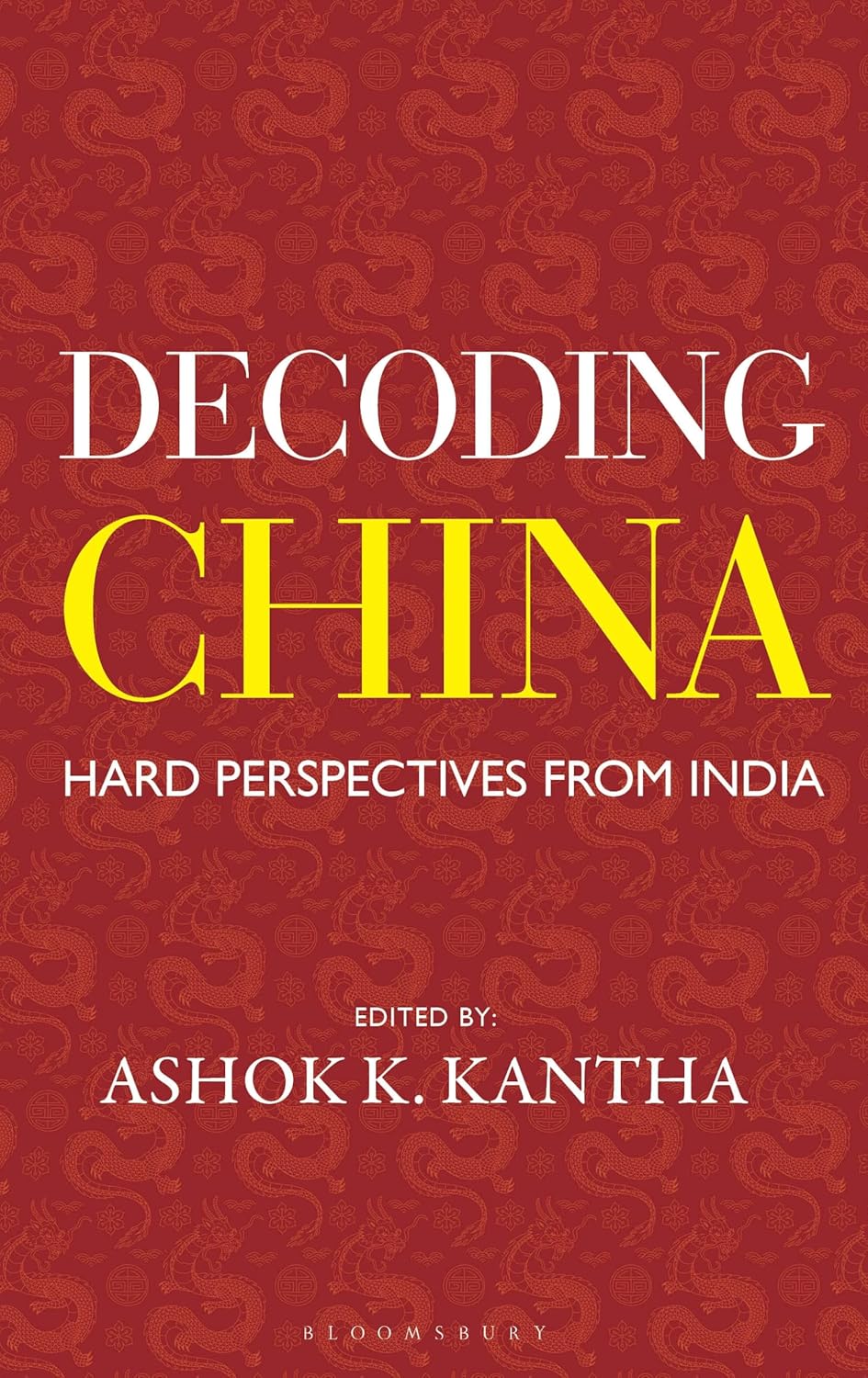
Shankar Kumar
Understanding China is very complex and challenging. Even after navigating through layers of its history, politics, and culture, it is hard to unravel its deeper realities—a challenge that demands continued attention. It is this challenge that Decoding China—Hard Perspectives from India, a book edited by former India’s Ambassador to China Ashok K Kantha, seeks to address.
Launched in New Delhi on Thursday at the Vivekananda International Foundation, the book, which is a compilation of write ups by 21 prominent diplomats, military officials and scholars who have closely watched ‘rejuvenation of the Chinese nation’ under President Xi Jinping, tries to present challenges posed by China to India.
For example, Ashok Kantha, who had a two-year ambassadorial stint in Beijing from January 2014 to January 2016, has no hesitation in baring open facts around disengagement reached recently between India and China on friction points in Eastern Ladakh.
“The Chinese transgression in Eastern Ladakh in May 2020 created a qualitatively different situation and a turning point in the relationship. Unlike previous standoff incidents, the Chinese have not restored the status quo as of April 2020, even though progress has been made towards the disengagement of troops,” he noted, highlighting how the Line of Actual Control continues to be heavily militarized even now.

While this speaks volumes of China’s attitude towards India, what is more concerning is Beijing’s persistent pursuit of aggressive designs against New Delhi. “China continues to significantly enhance long-term deployment capabilities along the entire LAC. Three major railway projects coming close to the India-China borders—Nyingchi, Yadong and Gyrong in Tibet—are under development, as are several highways, including G695 in Aksai Chin. The Chinese are prepared for an entrenched military presence close to the LAC,” Ashok Kantha said in his write up in the book.
What is significant with this book is its ability to sustain the readers’ interest across its 400 plus pages. In this context, Jayadeva Ranade, an ace China expert’s opinion merits attention. In his write up, he has noted that a mega dam on the Yarlung Tsangpo, or Brahmaputra River in Tibet that China is planning to build, will adversely impact lower riparian states like India and Bangladesh.
However, “construction of the dam also has military implications for India,” he said without emphasizing how China’s ambitious dam, which will be three times the size of the Three Gorges Dam, the world’s largest dam, will militarily impact India.
It is true that under Xi Jinping’s leadership, India and the world will have to be ready for any challenges. As Srikanth Kondapalli, Professor of China Studies at Jawaharlal Nehru University, points out, such concerns started mounting right from the day Xi Jinping took charge of the Communist Party of China in 2012, when he underlined that safeguarding “core interests” of China would take precedence over developmental priorities.
“The core interests were mainly related to China’s perceived national sovereignty and territorial integrity issues,” Srikanth Kondapalli noted in his piece “China’s Foreign Policy Under Xi Jinping—Transformation and Problems.” Srikanth Kondapalli who is known for his vast knowledge about China, underlines Xi Jinping’s expansionist agenda—not limited just to South Asia, South China Sea, East China Sea, or Taiwan. “A day before Xi visited Moscow in March 2023, China had changed the names of places in Siberia, including Vladivostok, to Chinese names without so much as a murmur from dependent Russia after the Ukraine conflict broke out.
Shedding further light on China’s foreign policy under Xi Jinping, Arvind Gupta, who is serving as the Director of the Vivekananda International Foundation, said, “China’s foreign policy is geared to support the strategic goal of realizing its dream. Its efforts are directed at ensuring that its rise is not contained by any power.”
Keeping this in mind, modernization of People’s Liberation Army has been China’s key national priority, said Lt Gen(Retd) Gautam Banerjee in his write up ‘Instrument of the Chinese Dream.’
“Admittedly, possession of robust military power is a foundational condition for sustaining political and economic power across the globe. But the question arises as to why the CPC is intent on building such a disproportionately powerful military unless it anticipates a coalescence of strong resistance against its impending action plans of remodeling the existing order of usually accommodative global administration in tune with its hegemonic agenda,” underlined Lt Gen (Retd) Gautam Banerjee.
ALSO READ: Dr. Arif Khan discovered crucial link between antibiotics resistance and food
Overall, the book provides a multi-dimensional perspective on China’s evolving trajectory under Xi Jinping. Drawing on the insights of seasoned diplomats, military officers, and scholars, it not only dissects Beijing’s domestic and foreign policy choices but also highlights the implications for India’s security, diplomacy, and development. By combining lived experiences with sharp analysis, Decoding China—Hard Perspectives from India provides readers with a timely and compelling account of the challenges posed by a rising China.
The author is an independent journalist who write on foreign affairs
